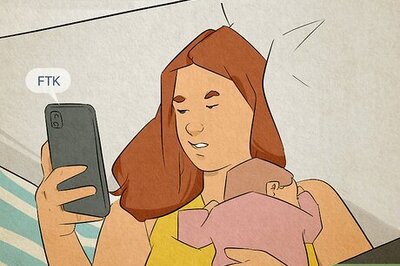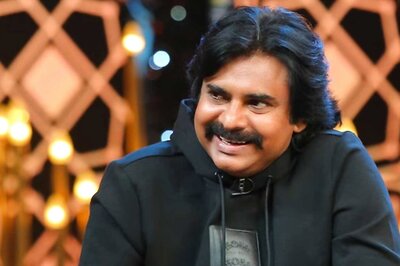
views
A lady advocate queried this author recently, “What is wrong in taking a few micrograms of drugs, if it gives me energy, motivation, zeal and a few moments of bliss?” A wonderful question that reflects the tectonic shift in the thinking of the Indian intelligentsia. Today’s drug addicts are not illiterate, poor or underprivileged, rather they are professionals in the field of law, medicine, engineering, health sciences, celebrities, and the elite.
What is wrong if a puff, a prick or a gulp can lead you up the stairway to heaven or send you on an inspired streak of creativity? Consider the famously inspired litterateurs like Aldous Huxley, Robert Louis Stevenson, Jean Paul Sartre, Tennessee Williams, Dylan Thomas, Thomas De Quincey, Edgar Allen Poe, Samuel Taylor Coleridge, Charles Dickens, Hemmingway, Arthur Conan Doyle, Ayn Rand, Elizabeth Barrett Browning, and Friedrich Nietzsche, all celebrated writers who were at their creative best while high on drugs.
Ayurveda discovered the potential of cannabis aeons back. The Atharva Veda extols cannabis as one of the five most sacred plants on Earth and says that a guardian angel resides in its leaves. It also refers to it as a “source of happiness,” a “joy-giver” and a “liberator”. Hence, its usage is recommended in many Ayurvedic texts like Charaka Samhita, Sushruta Samhita, and Shargandhara Samhita. After the NDPS Act came into force in India, standard Ayurvedic companies discontinued the use of cannabis in their products.
“I don’t do drugs, I am drugs” said Salvador Dali and other celebrated painters like Damien Hirst, Vincent Van Gogh, Jean-Michel Basquiat, Thomas Kinkade, and Andy Warhol. Those who sang on drugs were great names like Elvis Presley, the ‘27 Club’ of singers Janice Joplin, Jimi Hendrix, Jim Morrison, Kurt Cobain; the Beatles, Bob Dylan and Amy Winehouse. Actors who freaked out on drugs include celebrated names like Marilyn Monroe, Elizabeth Taylor, Drew Barrymore, Elton John, Carrie Fisher, Matthew Perry, Philip Seymour Hoffman, Matt Damon, and Angelina Jolie.
The Mughal emperors Babur, Humayun, Akbar and Jehangir were very fond of opium. Queen Victoria used it every day and she had a weakness for cocaine chewing gum. American President, John F. Kennedy, reportedly had a secret crystal meth addiction. Chairman Mao Zedong had a weakness for opium. Winston Churchill, Thomas Jefferson, George Washington, Adolph Hitler, and Benjamin Franklin, all took drugs regularly.
Celebrated scientists in the drug bandwagon include Thomas Alva Edison, the popular inventor, Sigmund Freud- the father of psychology, and Dr William Stewart Halsted, also known as the ‘Father of American Surgery,’ who became addicted to cocaine while experimenting with the drug as a surgical anaesthetic. Physicians treated him with morphine, which led to a second addiction. Modern-day icons like Steve Jobs had big issues with drugs.
All narcotics and psychotropic substances give the user an irrational exuberance and can indeed drive a person to bouts of creativity and ingenuity, but later drag the person into depths of despair. What starts off as a casual indulgence becomes a compulsory habit and deteriorates into a debilitating and life-threatening disorder.
Unfortunately, youngsters across India are seeking euphoria in heroin, cocaine and ecstasy, unmindful of the disastrous consequences in store for them. Even school children are getting exposed to drugs. The growing social acceptance and tolerance towards drug consumption is the most unwelcome development and does not augur well for future generations. Distressing reports are being seen in the media about young student doctors, engineers, lawyers, and management graduates, getting caught with drugs that were intended for sale or for personal consumption. Simultaneously, there have been reports of anti-drugs rallies, events like marathons, campaigns, awareness programs and seminars. Yet there appears to be minimal impact. The National Drug Dependence Treatment Centre has termed the present ongoing crisis as an emergency.
Where exactly are we faltering? This writer is of the view that the anti-drugs campaign needs to be handled by medical experts only. Presently, most of the anti-drug campaigns are being dealt with by enforcement agencies, which has its limitations. Drug dependence affects an individual both physically and mentally. Adolescents abusing drugs are interfering with and distorting the natural process of growth of the human body. Only qualified medical personnel, including practitioners of allied health sciences, can explain and convince youngsters about the physical and mental debilitation that drugs can induce in the human body. The feminine body, which has the additional responsibility of procreation, gets affected in more detrimental ways, as also the foetus, which can undergo irreparable damage. Anti-drug campaigns mostly focus on the stringent provisions of the Narcotic Drugs and Psychotropic Substances (NDPS) Act, peppered with general remarks about the dangers of drug consumption and subsequent addiction. This is inadequate as fear of the law is not a detriment for those seeking joy and ecstasy. The governments at the Central and state levels need to fully restructure the anti-drug initiatives, by inducting and entrusting them to medical personnel.
Dr. G. Shreekumar Menon IRS (Rtd), Ph.D. (Narcotics) is former director general of National Academy of Customs, Indirect Taxes & Narcotics. Views expressed are personal.
Read all the Latest Opinions here



















Comments
0 comment